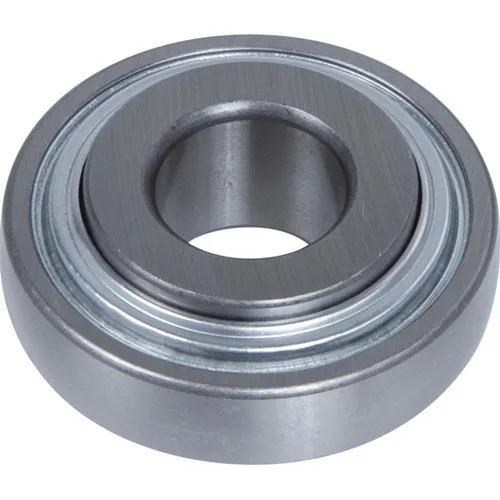Oct . 18, 2024 11:54 Back to list
Custom Miniature Spherical Bearings for Precision Applications and Enhanced Performance Solutions
Custom Miniature Spherical Bearings A Comprehensive Overview
Spherical bearings, particularly miniature variants, play an essential role in various engineering applications, from precision machinery to aerospace technologies. These bearings allow for axial misalignment and provide both rotational and linear motion with minimal friction, making them ideal components in delicate and compact systems. This article explores the significance of custom miniature spherical bearings, their design, applications, and manufacturing processes.
Understanding the Structure and Function of Miniature Spherical Bearings
Miniature spherical bearings are characterized by their compact size and unique design, featuring an inner sphere that fits into a matching outer raceway. This configuration allows the inner sphere to rotate freely while accommodating angular misalignment. The bearings are typically constructed from materials like stainless steel, chrome steel, or ceramic, chosen for their durability and low friction properties.
The primary function of these bearings includes supporting loads while allowing for movement in multiple directions. This flexibility is particularly beneficial in applications where space is a constraint, yet performance cannot be compromised. The miniature size of these bearings makes them suitable for devices such as robotics, medical instruments, and high-precision automation equipment.
The Importance of Customization
The manufacturing of custom miniature spherical bearings is largely driven by specific application requirements. Off-the-shelf solutions may not always meet the unique demands of particular projects, which is where custom solutions come into play. Tailoring the design allows engineers to specify parameters such as load capacity, size, materials, and surface treatments to enhance performance.
Customization can lead to improved efficiency and longevity of the bearing. For instance, in environments subjected to high temperatures or corrosive agents, selecting the right material is crucial. Similarly, micro-dimensions with enhanced precision can make a significant difference in applications where tolerances are critical, such as in aerospace or medical devices.
Applications Across Various Industries
1. Aerospace In the aerospace industry, miniature spherical bearings are integral to flight control systems and landing gear mechanisms. The ability to withstand extreme conditions while maintaining reliable operation is paramount.
custom miniature spherical bearing

2. Medical Equipment The medical sector utilizes custom miniature bearings in surgical instruments, diagnostic machines, and robotic surgical systems, where precision and reliability directly impact patient outcomes.
3. Robotics In robotics, these bearings facilitate motion in joints and actuators. Custom solutions ensure that they can handle variable loads and sustain high cycles of motion without failure.
4. Automotive The automotive industry employs miniature spherical bearings in various components, contributing to the smooth operation of steering and suspension systems.
5. Consumer Electronics Lightweight designs that fit compact spaces make miniature spherical bearings ideal for smartphones, drones, and other portable electronics, where performance must not be compromised by size constraints.
Manufacturing Processes
The production of custom miniature spherical bearings involves several critical stages. Initially, design engineers collaborate with manufacturers to develop a 3D model that incorporates all specified parameters. This model undergoes simulation testing to predict performance under various conditions.
Following the design phase, the manufacturing process often utilizes precision machining techniques such as CNC (computer numerical control) machining, which allows for high accuracy and repeatability. Once the components are fabricated, surface treatments may be applied to enhance performance, including coatings for wear resistance or lubrication to reduce friction.
Conclusion
Custom miniature spherical bearings represent a crucial component in a multitude of advanced applications. By understanding their structure, the importance of customization, and the diverse industries they serve, professionals can better appreciate their role in innovation and engineering. By investing in tailored solutions, companies ensure they meet specific operational demands while enhancing the reliability and efficiency of their products. As technology continues to evolve, the demand for high-performance, custom miniature spherical bearings will undoubtedly rise, shaping the future of various industries.
Latest news
-
25MM 2 BOLT UCFLX05-14 Flange bearing unit( oval)
NewsMar.07,2025
-
4 bolt UCF 200 series Pillow block bearings
NewsMar.07,2025
-
25MM 2 BOLT UCFLX05-14 Flange bearing unit( oval)
NewsMar.07,2025
-
UCF216-50 4-Bolt Flange Housing Square Bearing
NewsMar.07,2025
-
25MM 2 BOLT UCFLX05-14 Flange bearing unit( oval)
NewsMar.07,2025
-
spherical roller bearing material exporter
NewsMar.07,2025





